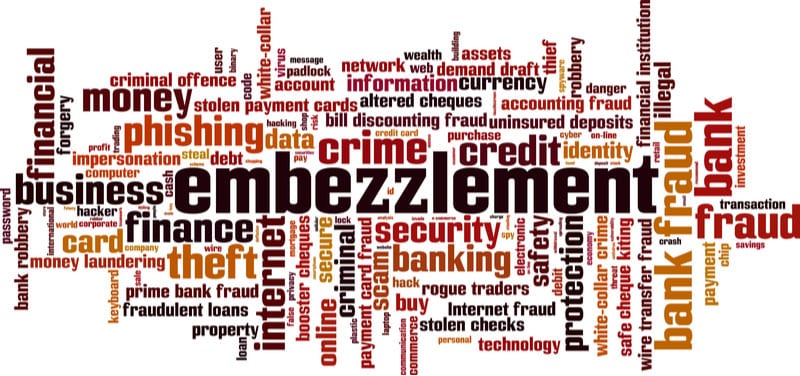
Embezzlement and Bankruptcy
Unfortunately, bankruptcy does not discharge all debts. Filing for bankruptcy may not offer you relief if someone has prevailed in a lawsuit against you, and there is an award for money stemming from embezzlement, or you have been ordered to pay fines or restitution in connection with a criminal prosecution. How a bankruptcy filing affects embezzlement-related debts depends on whether the debt is a criminal fine or is a civil award, as well as the action taken by your creditor after you have filed your bankruptcy.
Criminal Fines and Restitution
Some obligations will not get discharged in bankruptcy, such as restitution or fines concerning embezzlement. Bankruptcy section 11 U.S.C § 523(4) & (13) classifies these types of debts as nondischargeable debt. Hence, you will not be able to wipe out any obligation in connection to or stemming from embezzlement or criminal conviction.
Civil Judgments
In order for some debts are determined to be nondischargeable, your creditor must ask the bankruptcy court to determine whether the debt is nondischargeable. If your creditor fails timely file the appropriate action with the bankruptcy court or does not prevail in said action, their debt gets wiped out along with other obligations.
Debts stemming from embezzlement are in this category. Section 523(c) requires creditors to obtain a decision from the bankruptcy court that debts such as the ones listed in Section 523(a)(4) – debts in connection with fraud or defalcation while serving within a fiduciary capacity, embezzlement, or larceny – may be discharged.
In order for the bankruptcy court to determine dischargeability, Bankruptcy Rule 4007(d) requires an adversary proceeding – this is akin to a lawsuit within your bankruptcy, be commenced within 60 days after the initial set Section §341 meeting of creditors.
The Section 341 meeting of creditors typically happens 30 days after the bankruptcy case is filed, giving the creditor generally 90 days to commence the adversary proceedings. It is important to note that your creditor may ask for an extension within the initial 60 days, allowing them additional time to file an adversary proceeding. If the extension is not requested within 60 days, they will not be able to pursue a nondischargeability action against you.
The bankruptcy court must hold a hearing to determine whether the debt contains all the elements of an embezzlement claim. To be determined to be nondischargeable, the creditor must demonstrate the debtor embezzled funds. The U.S. Supreme Court has explained embezzlement to be “the fraudulent appropriation of property by a person to whom such property has been intrusted [sic], or into whose hands it has lawfully come.” Moore v. United States, 160 U.S. 268, 269 (1895). The three elements in the adversary case:
- the creditor trusted the debtor with his property;
- the debtor secured the property in a manner other than that for which it was entrusted; and
- circumstances indicate fraud.
If the bankruptcy court finds the embezzlement claim to be nondischargeable, it can not be discharged in any future bankruptcy case.
Contact a Knowledgeable Miami Bankruptcy Lawyer
Contacting an experienced Miami Bankruptcy Lawyer to discuss your specific situation will help you better understand if bankruptcy is right for you and how a potential embezzlement claim will impact your bankruptcy case.
Consultations Available At:
Consultations Available At:


